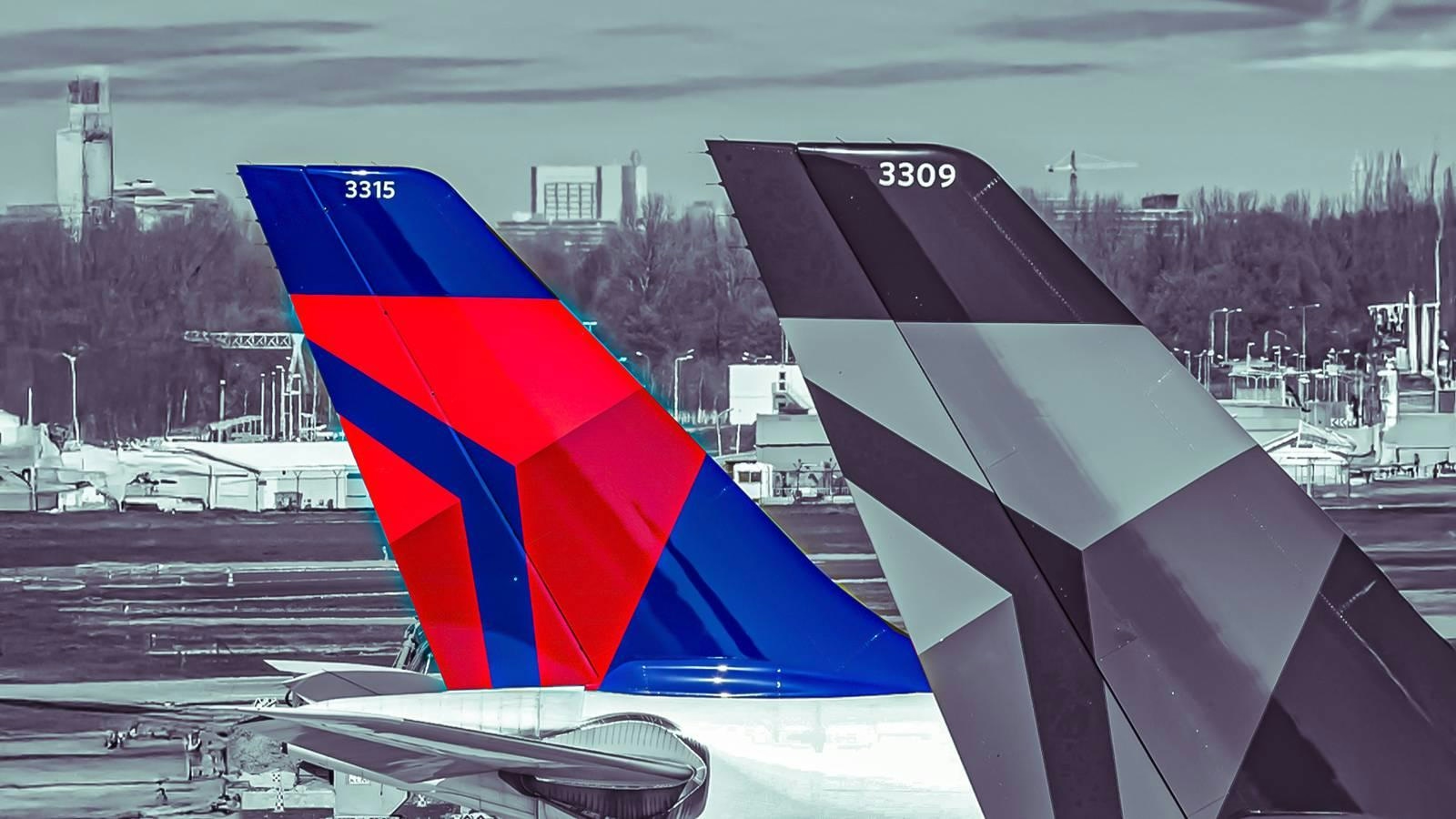AeroGenie — Your Intelligent Copilot.
Trending
Categories
Delta to Use Only Wide-Body Jets for Long-Haul Flights to Europe

Delta to Operate Exclusively Wide-Body Jets on Long-Haul European Routes
Delta Air Lines has announced a strategic shift to deploy only wide-body aircraft on all long-haul flights to Europe, discontinuing the use of smaller narrow-body jets on transatlantic routes. This decision is intended to provide a consistent and premium onboard experience that aligns more closely with passenger expectations amid intensifying competition from carriers such as American Airlines, United Airlines, and British Airways.
The move forms part of Delta’s broader global strategy to enhance its long-haul service offerings and follows a comprehensive fleet renewal plan. The airline is investing significantly in cabin upgrades across its wide-body fleet, incorporating features such as memory-foam cushions and calming lighting to create a uniform and elevated travel environment. These enhancements are expected to be introduced across European services in the coming seasons.
Transition to Wide-Body Aircraft
Historically, Delta operated a combination of narrow-body and wide-body jets on routes between the United States and Europe. Following extensive customer feedback and internal evaluations, the airline has resolved to utilize only wide-body aircraft—including the Airbus A330, A350, and Boeing 767—for its long-haul European destinations. These aircraft provide larger cabins, expanded premium seating options, and advanced in-flight entertainment systems, all of which contribute to a superior travel experience.
Delta executives emphasize that the need for a consistent international experience was a primary factor in this decision. Narrow-body jets often lack lie-flat seats, full premium cabins, and the amenities expected on longer flights. Moreover, newer wide-body models such as the A350 offer improved fuel efficiency per passenger, supporting both operational efficiency and environmental objectives.
Responding to Passenger Feedback
The policy change responds directly to sustained customer input, particularly from frequent flyers who expressed that narrow-body jets were more appropriate for domestic travel and did not meet expectations for comfort and amenities on transatlantic flights. Routes such as Boston to Dublin and New York to Reykjavik were frequently cited as requiring improvement. By standardizing wide-body service, Delta ensures that passengers on transatlantic flights will benefit from full-size business class cabins, Delta One Suites, and comprehensive entertainment options.
Fleet Consistency and Market Implications
Maintaining fleet consistency is central to Delta’s brand strategy, as it helps guarantee a uniform level of service across all long-haul routes. Industry analysts note that this approach also streamlines crew scheduling, maintenance, and training by reducing the variety of aircraft types used in international operations.
However, the exclusive use of wide-body jets presents challenges. These aircraft generally incur higher operational costs due to increased fuel consumption and maintenance demands. To offset these expenses, travelers may face higher fares on long-haul routes, which could influence consumer demand. Additionally, Delta’s move may prompt competitors to reassess their own fleet strategies, potentially altering the competitive dynamics of the transatlantic market.
Despite these challenges, Delta’s emphasis on premium seating appears to be yielding positive results. The airline has reported strong financial performance, with robust demand for luxury travel and main cabin revenue projected to exceed that of premium seats. This trend suggests that the market is responding favorably to Delta’s focus on comfort and service consistency.
Delta’s decision to operate exclusively wide-body jets on long-haul European flights underscores its commitment to enhancing passenger experience and brand uniformity, even as it navigates the operational and market complexities associated with this significant fleet transition.

Capital A Completes Sale of Aviation Business to AirAsia X

Four Gateway Towns to Lake Clark National Park

PRM Assist Secures €500,000 in Funding

Should Travelers Pay More for Human Support When Plans Go Wrong?

InterGlobe Aviation Shares Rise 4.3% Following January Portfolio Rebalancing

Key Market Segments Shaping Airline Route Profitability Software

Locatory.com Gains Traction Among Aviation MROs and Suppliers

JetBlue Flight Makes Emergency Landing Following Engine Failure

58 Pilots Graduate from Ethiopian University

The Engine Behind Boeing’s Latest Widebody Aircraft
